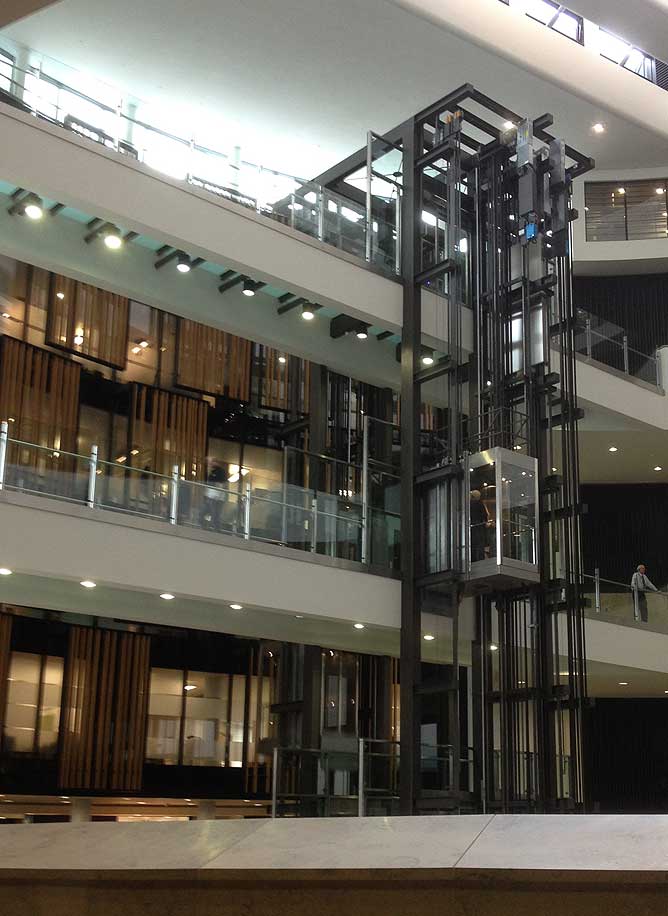
Dublin Circuit Criminal Court
The trial involving Independent Tipperary TD Mr Michael Lowry, together with the refrigeration company Garuda Ltd, continued in the Dublin Circuit Criminal Court today, in connection with alleged tax offences; same purportedly having been committed some 16 years ago, back in 2002.
Revenue Witnesses
Two senior officials gave evidence on behalf of the Revenue Commissioners, during the course of today’s hearing.
First to appear on the stand was Mr Kelly an Information Technology (IT) expert, employed by Revenue and supporting Revenue’s ROS system (Revenue On Line Service).
Mr Kelly explained briefly at the behest of prosecuting barrister Mr Remy Farrell SC, to the Jury of eight men and four women assembled, how ROS worked. He however was unable in some cases to confirm details regarding tax rules associated with the ROS System, requiring barrister Farrell to further confirm that Mr Kelly was more akin to IT technology, than taxes legislation.
The second witness for the prosecution, Mr Thomas Keating; the latter a former, now retired Senior Tax Inspector at Thurles Tax Office, sitting then in the heart of Mr Lowry’s constituency of North Tipperary, from January 2006 to October 2014, was next called to give evidence.
The Court was to learn that an income tax return for the year ended 2002 had been submitted on behalf of Mr Lowry in October 2003, using the new Revenue Online Service (ROS). This return indicated that the accused had accrued a total income of some €151,050, including a public office salary of €69,515, but as he had already paid P.A.Y.E for that year, it remained that he had no tax liability and had in fact overpaid his taxes by some €136.00.
A Corporation Tax Form, also known as a CT1 form then submitted on behalf of his company Garuda Ltd, by his accountants concluded that it operated at a loss of almost €100,000 for the year ending December 31st, 2002 and as such no tax liability existed, but rather a refund of €3,500 was justly due.
A CT1 form submitted in August 2007 for the year ending 2006 stated that Garuda Ltd had an income of just over €915,000 and a tax liability of some €114,000.
The Tax Inspector, Mr Keating, agreed with Mr Patrick Treacy SC, defending Garuda Ltd, that the declaration on the CT1 form received on behalf of Garuda for that year (ending 2002), forwarded by his accountants was neither “signed nor dated”. He further confirmed that same should not have been acted upon, due to the fact it bore no signature.
Mr Keating further accepted, under pressure, from Mr Patrick Treacy that the ‘fine print’ as such on such a declaration form provided, states that the person signing the document agrees that everything included in the form, to the best of the clients knowledge, is correct and complete. In this case there was no signed statement made on that CT1 form that none of the boxes were then deemed as being either correct or complete, due to the forwarded declaration remaining unsigned.
Mr Patrick Treacy asked Mr Keating if he had heard Mr Farrell’s original opening statement of the previous day e.g. “Cooking the books not once but twice” and “Putting toothpaste back into the tube” ; to which Mr Keating muttered, “I wasn’t in court, but I heard it on the RTE news“. Mr Treacy, defending, continued “Surely, when the CT1 form is not even signed, the lid can’t have been even removed from the toothpaste tube and the books couldn’t have been cooked”.
Mr Keating further agreed with defence barrister Mr Michael O’Higgins SC, that his client’s tax agent, BBT Accountants had received a letter from Revenue on August 26th, 2013, concerning the sum of money that currently “remains the core issue of this case”. Mr Keating fully accepted that this letter clearly stated that Revenue considered that the sum of £248,624 (Stg), received in 2002, constituted income for tax purposes. It further outlined that Mr Lowry now owed income tax on same, along with penalties in the form of levies and fines; same totalling some €516,000.
Mr Keating also further accepted that a similar letter was issued to Garuda Ltd, stating that this company owed some €510,000, which again included the original tax, penalties etc.
Mr Keating had no problem in agreeing that Mr Lowry and Garuda had a perfect right to challenge Revenue’s then findings, through use of the Appeal Commissioners, same the highest authority in the land. The same Appeals Commission assessed both Mr Lowry’s and Garuda’s tax liability and agreed that same be both reduced to a NIL liability, in effect stating that both Mr Lowry and his company Garuda each individually had nothing more to pay.
The trial will continues before Mr Justice Martin Nolan and his jury of eight men and four women tomorrow morning.

Leave a Reply